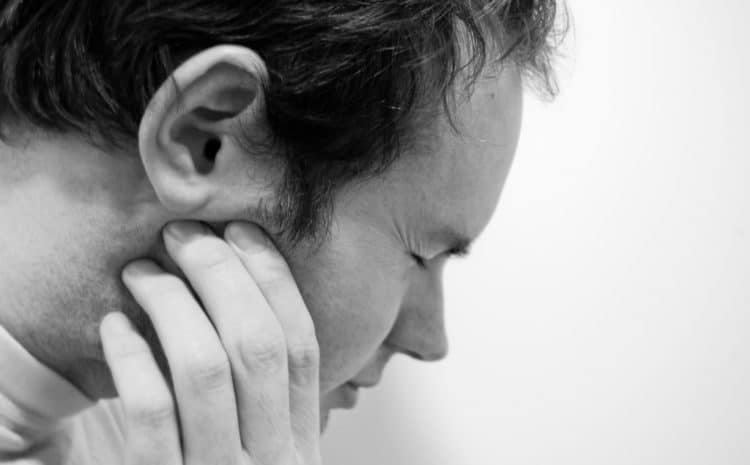
Can you imagine a life in which you feel pain or discomfort whenever you chew, yawn, or brush your teeth? This is the reality for many people who live with temporomandibular disorder (TMD).
The temporomandibular joint (TMJ) is composed of bones in the skull near the ears and lower jawbone, as well as surrounding ligaments and muscles. When these joints work properly, they allow us to speak, chew, and open and close the mouth.
When they do not work properly, you may begin to experience a variety of symptoms related to TMD.
Temporomandibular Disorder Symptoms
Symptoms of TMD can vary from person to person. Some people may never experience pain and only notice a subtle clicking of the jaw when they eat. Other people may experience difficulty with daily tasks due to the severity of their symptoms.
Symptoms may occur in only one joint or both. Symptoms occurring in only one joint may lead patients to believe the problem lies in another part of the body, like an ear infection or abscessed tooth. This could delay treatment.
If symptoms occur in both joints, they can vary in expression and severity.
Temporomandibular Disorder Symptoms include:
-
Dull aching pain in and around the jaw
-
Chronic headaches or migraines
-
Ringing in the ears
-
Aching in and around the ears that may come and go
-
Jaw muscle pain and fatigue
-
Neck and shoulder pain that radiates from the jaw
-
Having or feeling fluid in the ears
-
Limited jaw movement
-
Locking of the jaw
-
Difficulty chewing
-
Swelling and tenderness of the joint
Temporomandibular Disorder Causes
There is no single cause of TMD, which adds to the complexity of the condition.
Common causes of TMD include:
-
Injury to the teeth or jaw
-
Misaligned teeth or jaw
-
Physical trauma like a car wreck or fall
-
Teeth grinding (bruxism)
-
Jaw clenching
-
Poor posture
-
Stress and anxiety
-
Hormonal disorders
-
Sleeping on the stomach or sides
-
Joint dislocation
The cause could actually be multiple associated conditions that occur simultaneously, also called comorbidities. These associated conditions can include chronic fatigue syndrome, fibromyalgia, or sleep disorders. Your dentist will inquire about your health history, medications, and lifestyle to help determine the cause or cause.
Temporomandibular Disorder Diagnosis
A physician may be able to diagnose TMD, but you may need to see a dentist who can treat the disorder.
Your dentist may diagnose you by:
-
Listening to and feeling your jaw when you open and close it,
-
Observing the range of motion in your jaw, and
-
Obtaining a panoramic x-ray of your entire mouth and jaw.
Other health conditions can mimic TMD, so your dentist may ask questions about your health history in order to get a sense of your overall health.
These health conditions can include:
-
Sinus or ear infections
-
Dental cavities
-
Abscessed teeth
-
Nerve-related pain like trigeminal neuralgia
-
Tumors
Your dentist may also need to assess which medications you take, so bring a complete list of your medications (including supplements) to your appointment.
In order to maintain good oral health, it’s recommended to have your teeth professionally cleaned by a dental hygienist every six months. If you suspect you may have TMD, you can ask your dentist or hygienist about it during your appointment. Your hygienist may notice abnormal wear and tear of your teeth due to bruxism or jaw clenching, and bring it up on their own.
Temporomandibular Disorder Treatment
Many people will be able to self-treat mild TMD at home using ice packs, anti-inflammatory drugs like ibuprofen, and massages or gentle stretches of the jaw. It’s also important to avoid doing anything to upset the joint, like chewing gum.
People with moderate to severe cases of TMD can be treated by a dentist using a variety of treatments such as:
-
Custom-made dental splints,
-
Botox injections,
-
Physical therapy, and
-
Prescription medication.
Treatment will vary from person to person depending on the severity of the disorder and the suspected cause. Treatment will vary from person to person depending on the severity of the disorder and the suspected cause. Treatment for TMD is generally reversible and conservative.
In order to benefit from your treatment, it’s important to comply with your dentist’s recommendations, especially when it comes to wearing the dental splint. They may recommend you wear it 24/7 (except during meals) at the beginning of your treatment, or just when you sleep.
Surgery or other extreme, invasive treatments should be avoided and approached with extreme caution, since there is little evidence for the success of jaw joint surgery in improving symptoms of TMD.
TMD is a chronic condition that will most likely not go away on its own. Pursuing will allow you to start improving your chewing and regain your quality of life. If you need help determining whether you have TMD and what to do about it, you can visit the Advanced Dental Implant and TMJ Center. To set up an appointment or ask questions, you may call their office at (662) 655-4868 or contact them through their website



